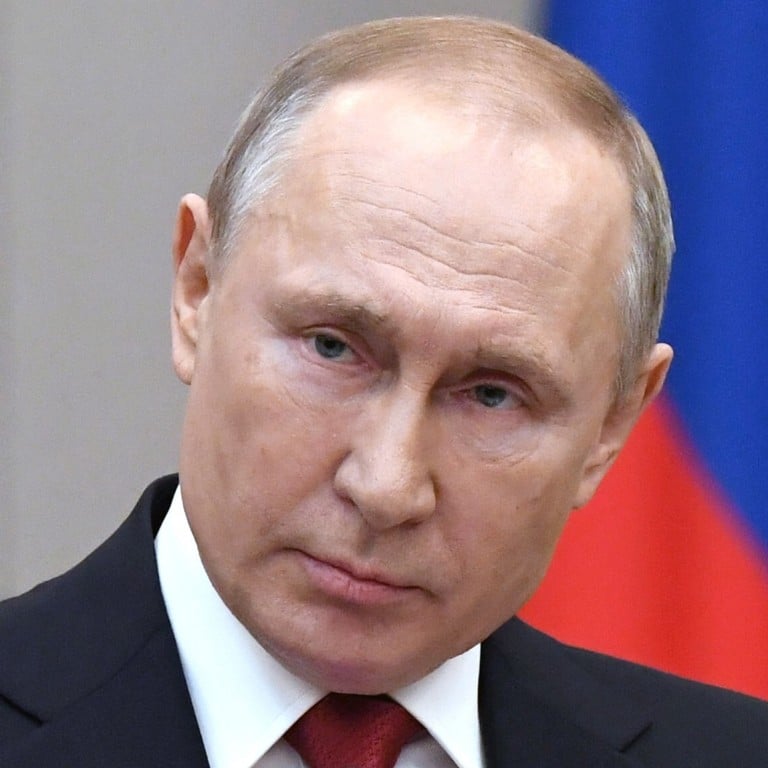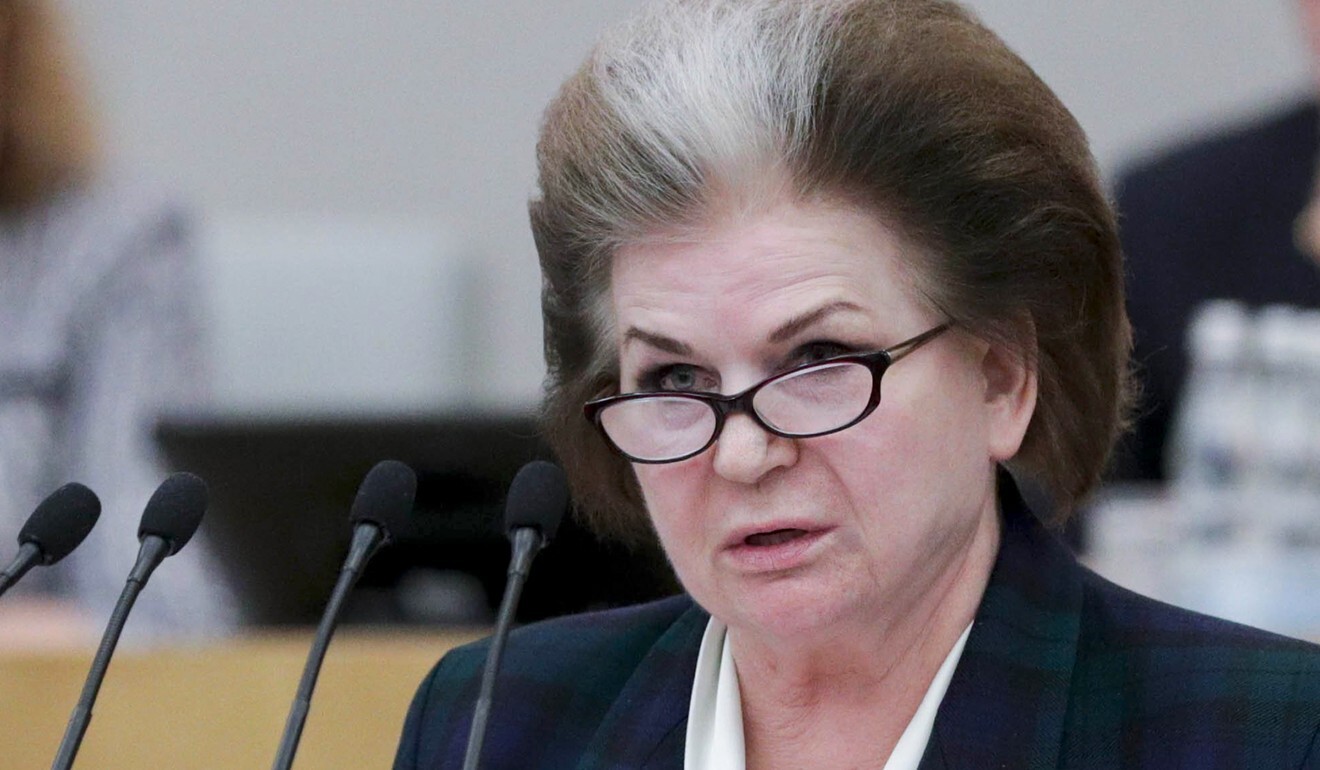
Vladimir Putin approves changes allowing him to stay in power until 2036
- Stability a priority when country is experiencing ‘shocks and difficulties’, president says, adding that Russia is still recovering from Soviet Union’s collapse
- Putin is required by constitution to step down in 2024, but proposed overhaul could see him in office until age of 83
Russian President Vladimir Putin has opened the door to constitutional changes that would allow him to remain in power until 2036, but said he favoured term limits once the country became politically “mature”.
Putin, who in January unveiled a major shake-up of Russian politics and a constitutional overhaul, is required by the Russian constitution to step down in 2024 when his second sequential and fourth presidential term ends.
But addressing the State Duma, the lower house of parliament, he gave his qualified blessing to a proposed change to the constitution that would formally reset his presidential term tally to zero.
“The proposal to remove restrictions for any person, including the incumbent president … In principle, this option would be possible, but on one condition – if the constitutional court gives an official ruling that such an amendment would not contradict the principles and main provisions of the constitution,” Putin said.

He said US President Franklin D. Roosevelt serving four terms because of the upheaval his country was going through at the time – the Great Depression and World War II – was an example of why presidential term limits were sometimes superfluous.
“In conditions when a country is experiencing such shocks and difficulties, of course … stability is perhaps more important and must be a priority,” he said, adding that Russia was still recovering from the 1991 collapse of the Soviet Union.
If, as Putin’s critics suspect, the constitutional court gives its blessing and the amendment is backed in a nationwide vote in April, Putin could serve another two consecutive six-year terms.
Were he to do so, and his health and electoral fortunes allowed, he could stay in office until 2036, at which point he would be 83.
Putin says Lee Kuan Yew’s Singapore not suitable model for Russia
Kremlin critic and opposition politician Alexei Navalny said he believed Putin was now set to become president for life, while Navalny’s ally, Ivan Zhdanov, decried the move as tantamount to a constitutional coup.
Putin, 67, now had more room to manoeuvre politically, said Tatiana Stanovaya, a non-resident scholar at the Carnegie Moscow Centre.
His stance handed him the option to run again in 2024 should he choose to do so and removed political challenges raised by what had been seen as his last term in the Kremlin, she added.
“The successor issue disappears. The issue of Putin as a lame duck disappears,” Stanovaya said.
Opposition activists said they planned to protest against what some called a rewriting of the constitution in the interests of the ruling elite. One group said it had applied for permission to stage a demonstration on March 21.

A former KGB officer, Putin, who has also served as prime minister, has dominated the Russian political landscape for two decades.
Putin has not elaborated on what his future plans are, but he has said he does not favour the Soviet-era practice of having leaders for life who die in office.
Putin appeared before parliament on Tuesday after Valentina Tereshkova, a lawmaker from the ruling United Russia party and the first woman in space, told parliament she was proposing to amend the constitution in a way that would reset his presidential term count to zero.
Why Putin’s ‘constitutional coup’ is unlikely to trigger wave of protests
Explaining the surprise move, Tereshkova said voters had told lawmakers in recent meetings that they wanted Putin to “stay nearby”, whatever constitutional changes occurred.
“What if suddenly something goes wrong?” Tereshkova asked. “He [Putin] will be able to support, help and have our backs.”
On Wednesday, the Russian lower house of parliament gave its definitive approval to the constitutional changes. They were expected to be approved by the upper house on Saturday, then go to the Constitutional Court, the Russian news agency Interfax has reported.
Additional reporting by DPA

